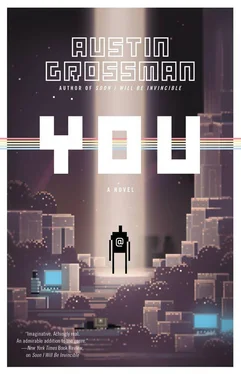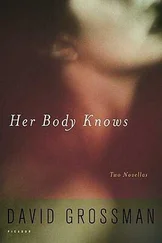“Fun takes many forms. And no. I’m just trying not to die.”
“Weren’t you already here?”
I’d crept around a corner to find three Soviet guards already dead.
“Can’t be. Just got out of the stairwell.”
We exchanged glances. I sprinted ahead, then pulled back. The next room was crowded with alert guards. I heard a sniper rifle ping and one of them went down. Mournblade had returned.
“So… did you have a plan for when this happened?” she said.
“I’ve killed, like, nine hundred seventy-seven guards in the past forty-eight hours.”
I ducked out and back. The sniper had an annoyingly good position at the top of a wide cylindrical shaft. We were at the base of a missile silo, I realized.
“This one’s going to be eating souls for a while with his magic sniper rifle,” she said. I’d kept Nick Prendergast alive this long; I didn’t want to step into that kill zone.
“I know.”
“Can he suck their souls when they’re already dead?” she asked.
“No. Ew. But no.”
I stood back and started rolling hand grenades through the door. Booms and recorded Russian screaming started up. Above, the demented sniper reloaded. Souls for the accursed rifle! Then silence as the last guard died. I turned the sound up.
“What?”
“Wait for it,” I said. Silence, a faint groan, then a far-off clank. I sprinted through the doorway and up the metal stairway that spiraled up the side of the shaft. Mournblade’s wielder was dead. I reached the rifle just before it disappeared. I clamped the tracking device I bought in Paris in 1937 to its black barrel, and it vanished.
“It worked.”
“So where did it go?”
The tracking device had a monitor I carried that could tell me where the beacon went. Unrealistic, especially for a device built when we were still trying to figure out radar, but it made perfect in-game sense.
A line on the display pointed in a precisely vertical direction. Below were the words DISTANCE: 9.85E24. So it went up.
That night I dreamed of a final encounter with Karoly, the one that finally ended it. It couldn’t last, after all. Nick couldn’t keep looping back through time forever. Karoly stood on a catwalk in the missile silo, arrayed in a Soviet space suit and helmet, which he tucked under one arm.
“Hello, Nick Prendergast. You are rememberink me, yes? Da? Today glorious Soviet state is winnink space race. It is 1989, yes? Not a moment too soon, I am thinkink.”
Little puffs of steam emerged from the rocket’s sides.
“I am to be goink to space now.”
I was only two levels beneath him. A Klaxon warning buzzed on and off; spinning red lights tracked across his face. A gangplank began extending out from the side of the shaft toward the rocket itself.
“I am envyink a long time now your life in the West, Comrade Nick. But twenty thousand years after your death I will wake up amonk the stars and where will you be? I will do the Great Comrade’s work there. And I will be havink the weapon I need at last.”
What weapon? Mournblade? A plus-five intercontinental ballistic missile? A new and unfailing disinformation campaign?
A technician beside him finished programming a row of coordinates that appeared on the wall.
“Or—who is knowink?—perhaps Workers’ Paradise is already beink there, looking down on us.”
I hope so, friend.
“A great war it was, you are agreeink? But for now it is no more questions. The future is not ours.”
This game was written in 1995, Karoly. If you even existed you’d have lost the Great Game five years ago. The future is mine but I’m not sure I want it. Maybe it should be yours, after all. You’d know what to do with it.
“I am thinkink, we are belonk dead.”
He lowered his helmet and stepped onto the rocket. His assistant turned to input the final launch command. I saw very clearly—past two generations of game technology and half a dozen platforms—that it was Laura. She turned and left as the interstellar rocket roared away. We’d always have Paris.
Even in the dream I remembered it was the last game Simon made.
Late on a Tuesday night I was trying to set up three boulders just right to fall on players as they came up a trail. But they fell too soon or too late, or not at all, because the simulation had no interest in my wishes whatsoever. Lisa knocked on my desk.
“Come here,” she said. “I want to show you something I got running.”
“All I want to do is kill,” I said. “It’s all I want now.”
“Come on.” She grabbed my sleeve and pulled.
“Okay, okay.” She led me to the outskirts of the cubicle settlement, where a table was piled with ugly-looking hardware. Virtual-reality headsets; bulky, dorky motion-sensing goggles.
“Why do we have these?” I asked.
“We get them free for supporting them. I’ve got it running now, try it out.”
I picked one up. “This weighs, like, ten pounds. Who buys these?”
“As far as I can tell, nobody ever in the history of the world,” she said. “Come on, I spent two days on this.”
“I’m going to look stupid.”
“Everybody does. Even the models on the side of the box do.”
I put it on. The display was like having a pair of tiny, low-resolution TV screens two inches from your eyeballs. It was showing bright static. “Jesus,” I said. “Just tell me when I can open my eyes.”
I heard her typing. “Now.” I opened them.
“So?” It was Endoria on a tiny low-resolution screen.
“Turn your head.”
I did, and my view turned, too.
“I… oh, my God.” It was stuttery and low-resolution, but it was as if the borders of the monitor had fallen away and the rendered world spread to engulf me. I looked down at myself, half expecting to see a medieval tunic. I looked up into the blue sky and right into the sun, which gave fake lens flare, as if seen through a nonexistent camera. The air of the office felt Endorian. The hair on my arms stood up; a part of my brain was afraid and yet very, very happy.
“How come nobody knows about this?”
“Because everything about it sucks.”
I felt weightless. It felt like—
“Did Simon ever get to try this?” I asked.
“No.”
“Where are you?” I said.
“Here.” Somewhere back on earth I felt her take my hand, tightly. For a minute, I felt like Simon wanted to feel.
Icouldn’t see anything promising in falling in love with the heroine in a video game, but there it was. And that I was designing her latest game raised questions of conflict of interest. But I was in love—I couldn’t help it. It was an occupational hazard and didn’t do any harm. So what if I had a fantasy girlfriend? She was smart and confident and had amazing hair, and she was a princess. At least she was a playable character. Or did that make it worse?
After much hesitation I’d asked her to have dinner with me at a Vietnamese restaurant in the Garage, in Harvard Square, on our awkward first date (at least, I thought it was a date; there were cultural differences to consider). I sipped my bubble tea while she fidgeted in her seat. She was in her alternate outfit, the one you unlocked by finishing Tournament of Ages without losing a single match. It was like a cherry-red sheet-metal corset. It wasn’t built to sit down in. It didn’t look much good at stopping arrows, either.
She leaned the NightShard, her signature weapon, against the scarred wood paneling behind her. It was a long wedge of dull gray metal with a two-handed hilt. The weapon was named for the chip of obsidian mounted at the top, allegedly hewn from the scales of a nameless dragon-god. The blade was bare of runes or any ornamentation, but that would change if it tasted blood tonight. No one tried to take it.
Читать дальше





![Ally Carter - [Gallagher Girls 01] I'd Tell You I Love You But Then I'd Have to Kill You](/books/262179/ally-carter-gallagher-girls-01-i-d-tell-you-i-lo-thumb.webp)






